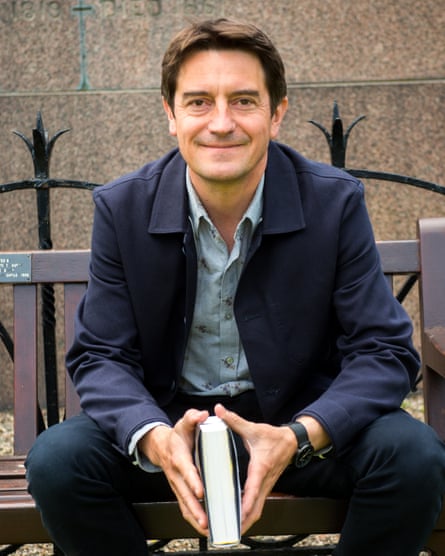Directors of some of Britain’s biggest festivals have signed a letter calling for the government to make its “overly complex” visa application process more transparent, after a surge in refusals and complications for authors, artists and musicians invited to perform in the UK.
Signatories of the letter, published in the Guardian, include Nick Barley, the director of Edinburgh international book festival, and Chris Smith, the director of Womad. Both recently went public with their festivals’ attempts to get visas for authors and musicians, reporting multiple refusals and unexplained delays, specifically for applicants from Middle Eastern and African countries.
“The current visa application process for artists is lengthy, opaque and costly, with artists and/or festivals often spending thousands of pounds on visas and associated costs for a visit of often only a few days,” reads the letter, which is also signed by the directors of the Hay festival, Sheffield Doc/Fest, Manchester international festival and Bradford literary festival.
“The overly complex process leads to mistakes being made by both applicants and by assessors, and refusals being made for visas that could theoretically be granted. The situation has led to artists now telling festivals they are much more reluctant to accept invitations to come to the UK due to the visa process, despite the assistance we receive from bodies such as the British Council and UK embassies across the world.”

The letter suggests several solutions: direct contacts in UK Visas and Immigration or visa application centres for registered sponsors; a reduce in costs for artists applying for visitor visas for festivals; “passport pass back as standard procedure” – a policy that allows some applicants to keep their passports while their application is processed; clarification of appeal procedure; and online updates for applications.
Last month, Smith told the Radio Times the impact of the application process on foreign musicians “genuinely broke his heart” and had made it more difficult to attract performers to Womad, with some choosing to withdraw after looking into the process.
For the Edinburgh international book festival, Barley described a “Kafkaesque” and “humiliating” process that rejected and delayed applications from a dozen authors, from the Middle East, Africa and one from Belarus. After the festival started on 11 August, the final three uncertain applications were approved, with the Iranian illustrator Ehsan Abdollahi receiving his visa this week, after more than a month of waiting.
“Festivals are particularly vulnerable to the problems we’re seeing with visas because they rely on visits that are short in duration, and at short notice,” Barley said on Tuesday. “Festivals have become one of the most vibrant ways of celebrating culture in Britain, but this new visa problem puts them in jeopardy. It will impoverish British culture if festivals can’t be international.”
Deidre Brock MSP, whose office has been assisting with delayed applications for artists invited to various festivals held in Edinburgh, said delays were on the rise, adding: “It’s clear this is affecting festivals all around the UK. This is symptomatic of a broken visa system that needs addressed before more artists simply decide it’s not worth the hassle.”
“It’s appalling that the UK government puts international guests through such a stressful process simply to come and share their talents with us,” she said, citing the case of the Palestinian author Nayrouz Qarmout, who had to apply three times before getting her visa for the book festival. “Any concerns or missing information on the application could have been resolved months ago by better communication with the organisers. An opaque, error-prone, inefficient visa system does not make the UK safer but it will make us poorer and more isolated.”
Peter Florence, the director of Hay festival, told the Guardian after signing the letter: “For many reasons, it’s always hard to get Palestinian writers anywhere but you normally get support from the Home Office rather than this new process of obstruction.
“In all our years of working internationally in places from Beirut to Lagos, we’ve rarely experienced difficulties on this scale. Britain is now one of the most difficult places to get people in to. We have writers asking to come to our festivals in Spain and Latin America instead, as the process has become so discouraging and hostile. We are undoing 500 years of internationalism and becoming what is beginning to look like a pariah destination.”
A Home Office spokesperson said: “We welcome artists and musicians coming to the UK from non-EEA countries to perform.
“In the year ending December 2017, 99% of non-settlement visa applications were processed within 15 days and the average processing time in 2017 was just under eight days. Guidance on visa and entry clearance requirements is publicly available on GOV.UK. Each case is assessed on its individual merits against the published immigration rules.”
